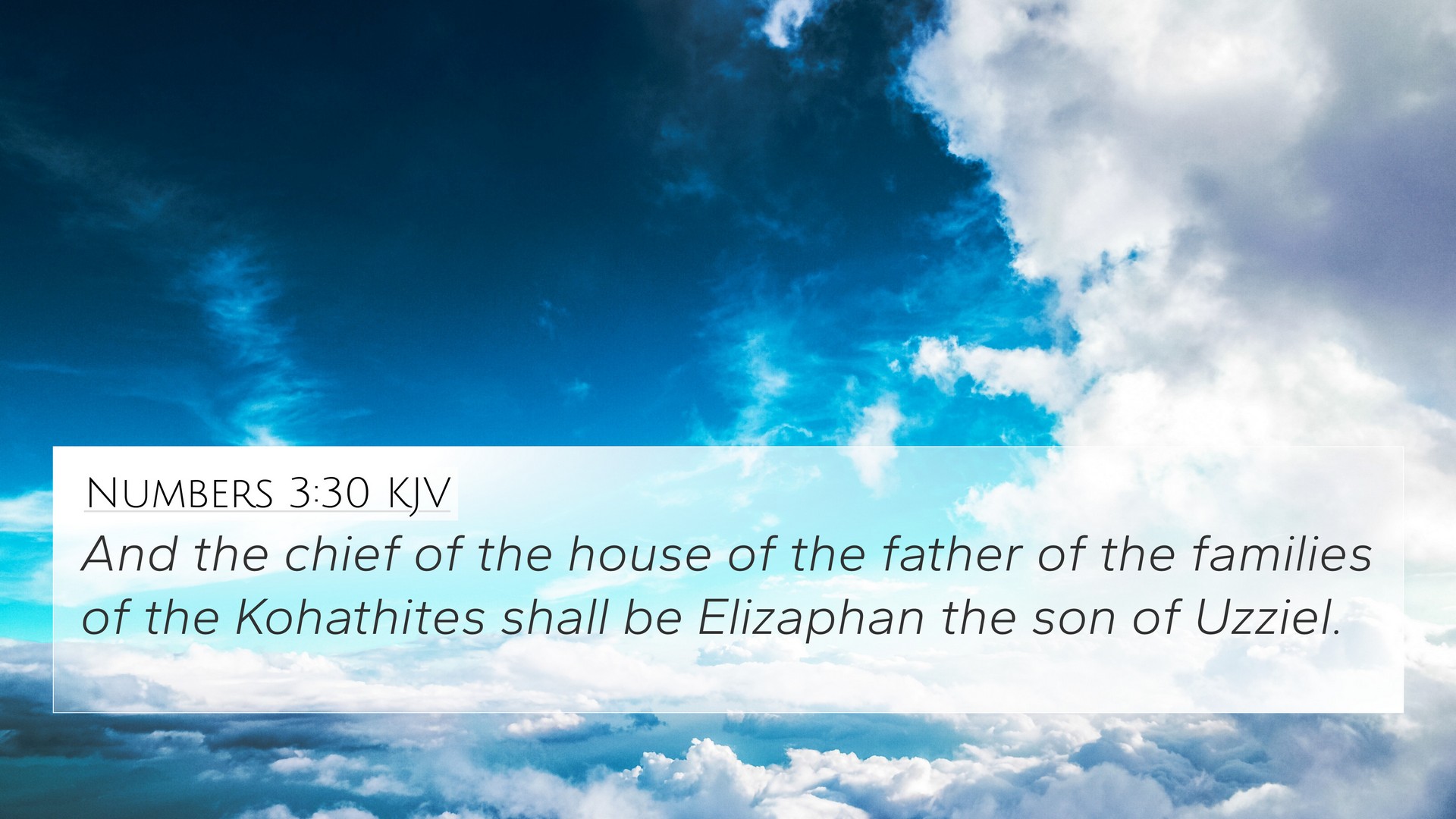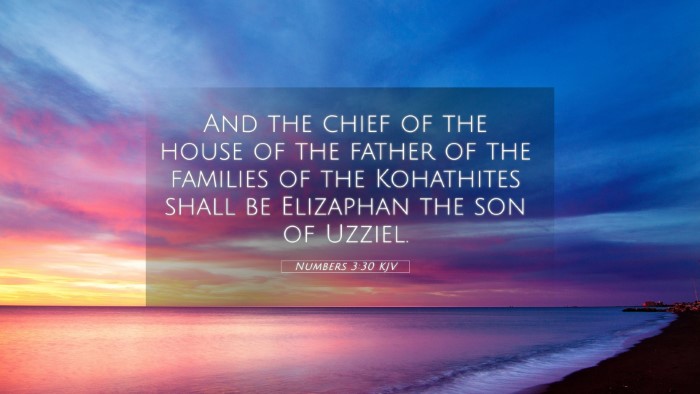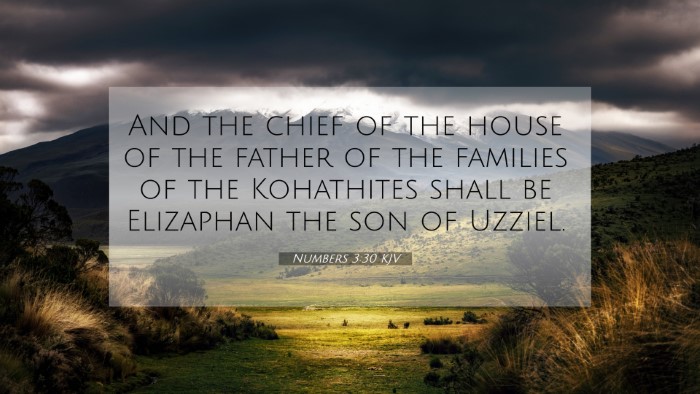Understanding Numbers 3:30
Numbers 3:30 states:
"And the chief of the house of the father of the families of the Kohathites shall be Elizaphan the son of Uzziel."
Summary of the Verse
This verse refers to the designation of Elizaphan, the son of Uzziel, as the chief of the Kohathites, a crucial family within the Levitical priesthood. This appointment highlights the significant role of the Kohathites, who were responsible for transporting the most sacred objects associated with the Tabernacle.
Commentary Insights
Matthew Henry's Commentary
Matthew Henry emphasizes the importance of the Kohathites in the context of the Israelite camp. He notes that Elizaphan's leadership signifies trust and responsibility for sacred items, reinforcing the notion that God often appoints leaders among His people for specific tasks. The Kohathites were tasked with the care of the holy things, indicative of their special role in maintaining God’s presence among His people.
Albert Barnes' Commentary
Albert Barnes points out that Elizaphan, as the chief of the Kohathites, illustrates the organization of the Levitical families. He stresses that this familial division was crucial for maintaining order during the Israelites' journey through the wilderness. The mention of Elizaphan also signifies the honor bestowed upon certain families within the tribe of Levi, thus accentuating the hierarchical structure established by God for worship and service.
Adam Clarke's Commentary
Adam Clarke elaborates on the role of Elizaphan, interpreting his position as critical for not only the Kohathites but also for the entire Israelite congregation. He suggests that this verse indicates the importance of lineage and heritage in the Israelite community, reiterating that God’s calling often comes through established family lines. Clarke also notes how the specific mention of Uzziel's lineage underscores the divine order in leadership roles within the community of the faithful.
Thematic Connections
Numbers 3:30 connects to various themes within the Bible, particularly regarding leadership, responsibility, and the sanctity of worship. The role of the Kohathites provides a lens to understand how God organizes His people and appoints them for divine service.
Bible Cross-References
- Numbers 4:1-4 - Details the duties of the Kohathites, emphasizing their responsibility in handling sacred items.
- Exodus 6:16-20 - Lists the genealogy of Aaron and Moses, showing the heritage of the Levitical priesthood.
- 1 Chronicles 6:1-5 - Further genealogical records, illustrating the continuity of the Kohathite family.
- Hebrews 7:14 - Connects the priesthood of the Old Testament with the new order established by Christ.
- Leviticus 10:1-3 - Discusses the sanctity of God’s instructions and His holiness, relevant to the duties of the Levites.
- 2 Samuel 6:6-7 - Involves the handling of the Ark of the Covenant, relating to the care of sacred items by the Kohathites.
- Hebrews 9:3-5 - Explains the significance of the items within the Tabernacle, reinforcing the Kohathite duties.
Application and Reflection
This verse serves as a reminder of the importance of obedience to God’s appointed structure and the significance of serving in designated roles. By understanding the historical and spiritual context of Numbers 3:30, modern readers can glean insights into God's order and His expectations for leadership and service among His people.
Conclusion
Numbers 3:30, with its profound meaning framed within the context of divine appointment and sacred duty, invites us to explore not only the historical implications of the Kohathites' role but also its theological significance. The connections and cross-references to other Scriptures enhance our understanding and appreciation of this pivotal verse, underscoring the carefully woven tapestry of God’s plan throughout the Bible.


